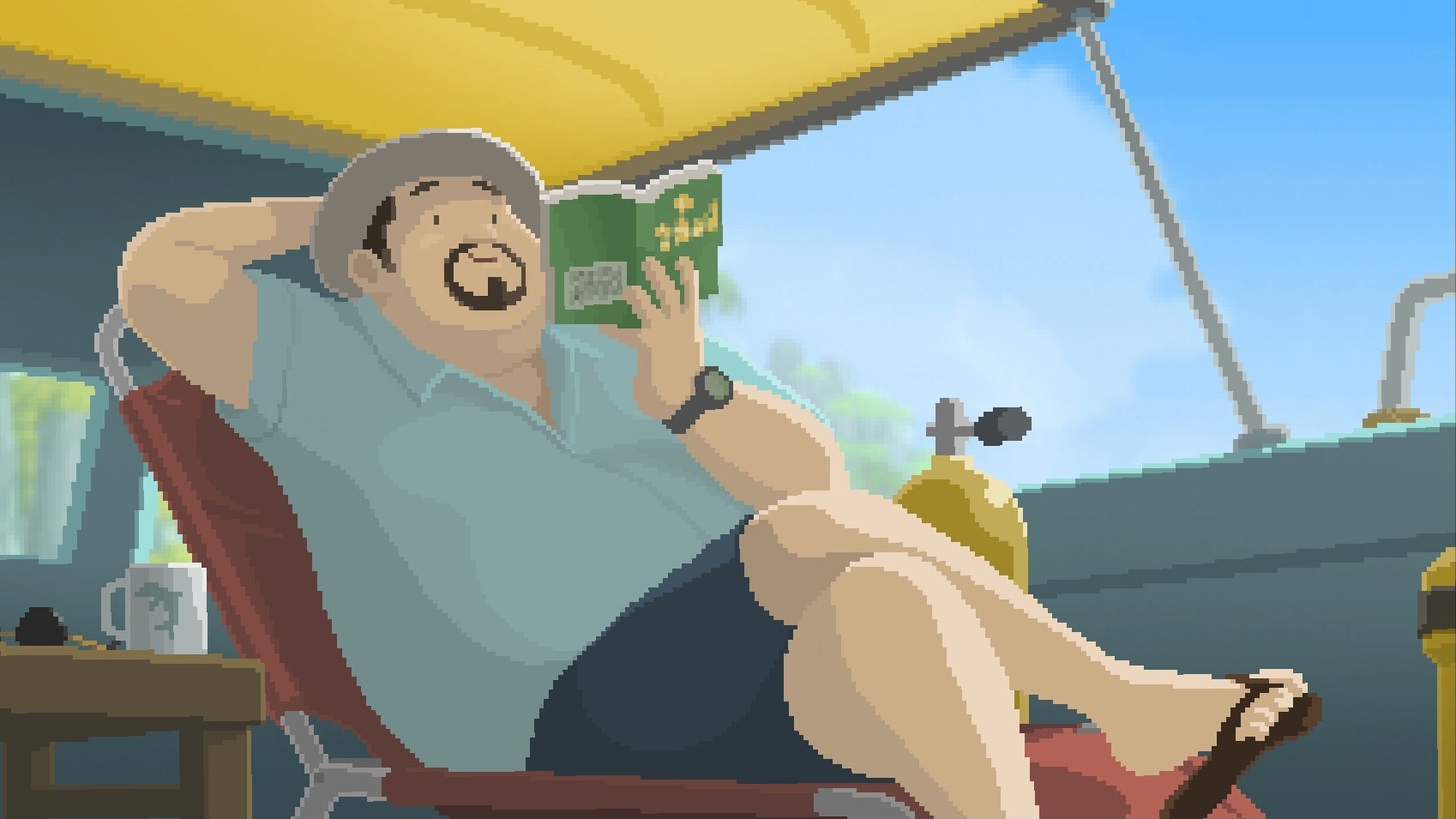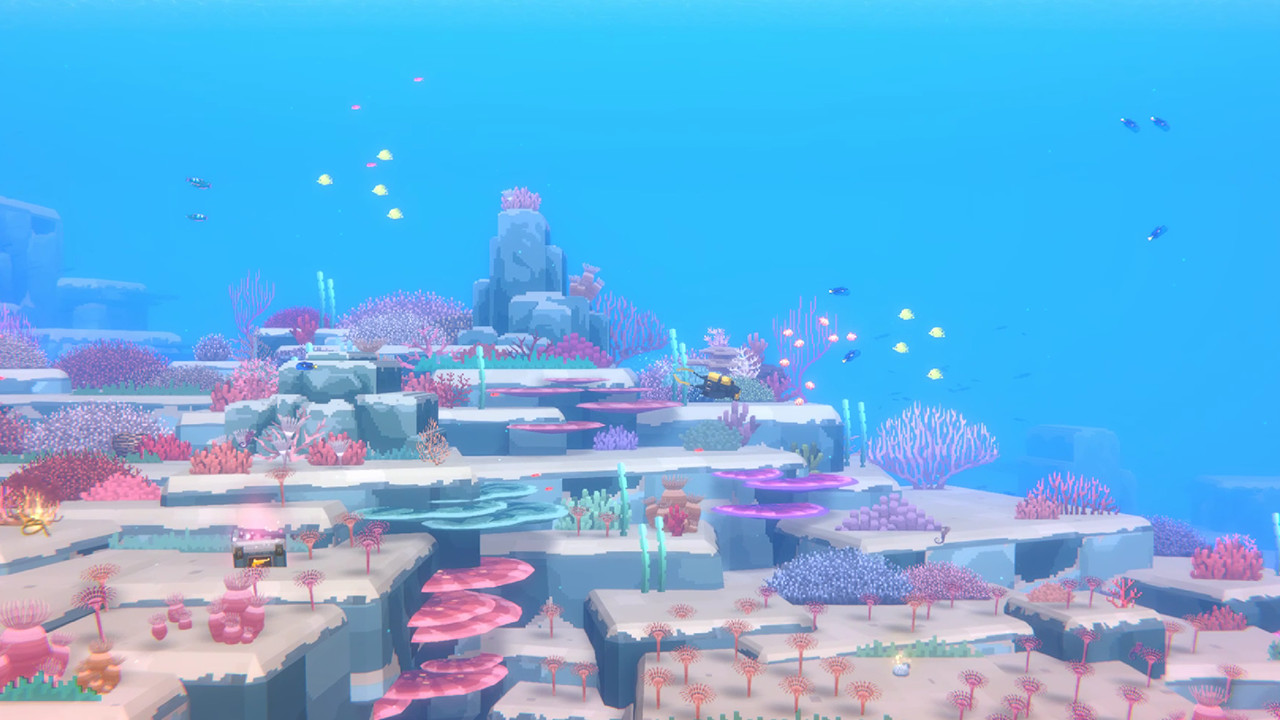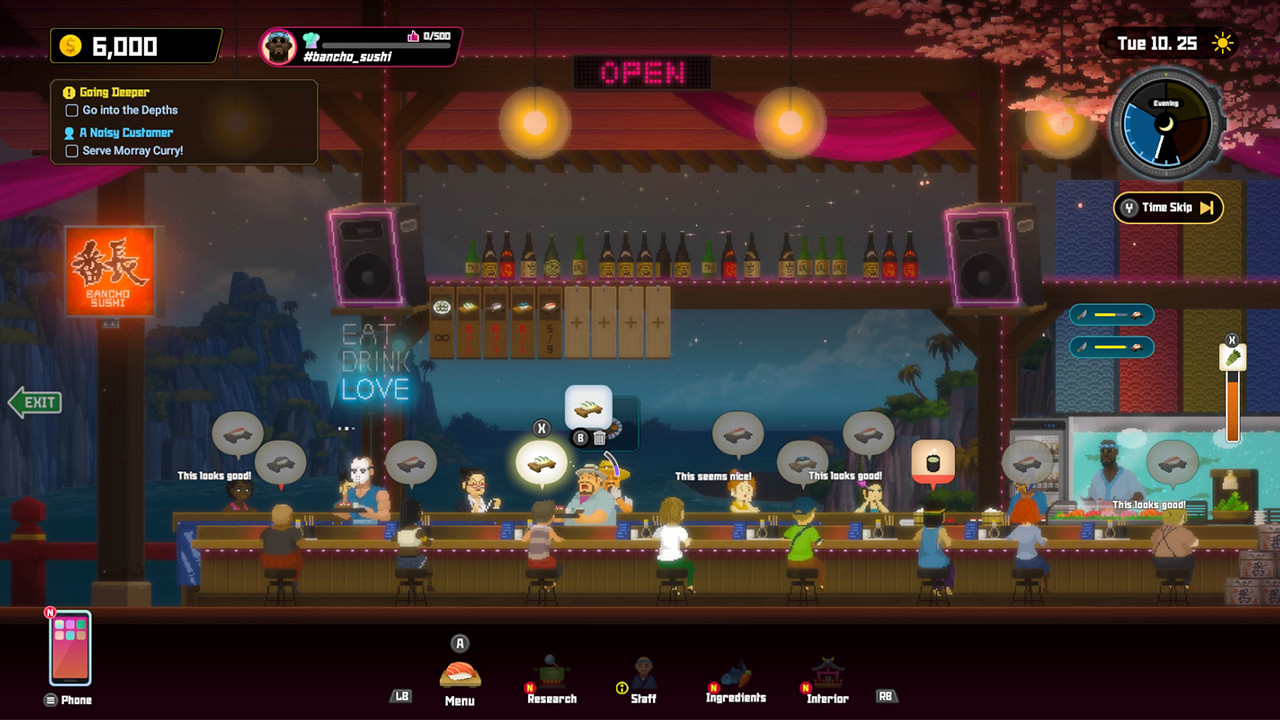
If there's one thing you can confidently predict about the games industry, it's that it will always be unpredictable.
Big publishers are obsessed with the sure bet, endlessly pouring cash into iterative sequels, but every year there's some smash hit that comes out of absolutely nowhere and makes them look like dinosaurs. Among Us, Valheim, Vampire Survivors. This year, it's the wonderfully unassuming Dave the Diver.
What more unlikely videogame protagonist could there be than Dave? Portly, meek, and ever reluctant to actually go on any adventures, he's the quintessential everyman right down to his four letter name. Have circumstances conspired to drag him into some cosmic adventure with the fate of the world at stake? Well, not really. There's some weird and important stuff happening, for sure, but mostly he just wants to catch fish by day and serve them at his sushi restaurant by night. He doesn't even own the restaurant.
And yet I find myself more excited to keep jumping into Dave's flippers this year than I am to ignite Cal Kestis' lightsaber, tie on Ryu's headband, or pick up Leon Kennedy's pistol. We just gave the game a well-deserved 91% in our review, it's sitting at an 89 on Metacritic, and it's rated Overwhelmingly Positive on Steam thanks to over 20,000 user reviews. At its peak, about 86,000 people are swimming simultaneously each day, spearing triggerfish and fending off manta rays.
At a basic level, Dave the Diver isn't really doing anything new. Its core structure—taking ever deeper dives into the ocean in search of fish and new resources, and using them to upgrade your equipment so you can dive deeper next time—isn't very different from something like 2013's SteamWorld Dig, or many other modern roguelike-ish indies. The individual things you can do are familiar as well—catching fish, managing a restaurant, farming, collecting things. So what makes the game such a breath of fresh air?

Dave the Diver's secret weapon is novelty. Its core loop is fun—there's a decent amount of strategy to your ocean dives, and rush hour at the restaurant is just intense enough to draw you in—but what elevates the game is the way it constantly adds new segments tothat loop. The sheer variety of systems at play in the game is impressive enough—by the end you're doing everything from weapon crafting to vegetable farming to boss fights against screen-filling creatures—but the genius is in how it's fed to you. Every time you start to feel like you've gotten to grips with an idea, a new layer is peeled back, adding another system onto the stack to keep things feeling fresh.
Take the restaurant, for example: at first, you're simply setting a basic menu and carrying dishes to customers. But then you're given a social media feed to track your popularity, and then you're able to hire and train employees, and then you get a fish farm to cultivate, and then VIP customers start showing up, and then, and then…
Filler between these moments is kept to a minimum, allowing the constant introduction of layers to be its own reward for play—along with the hilarious, anime-inspired cutscenes that accompany every new element. Instead of rushing through tutorials to set the stage for the game so it can then turn you loose, Dave the Diver finds joy in that moment of a game revealing itself to be a little bigger and more ambitious than you expected. And it just keeps doing it, pulling off the same gentle magic trick every time you've even come close to settling into a familiar rhythm.

Swimming against the current
You're a diver who catches fish for a restaurant—that's far from the usual power fantasy of gaming.
It's a starkly different approach to your average big budget game. Something like a modern Assassin's Creed is similarly interested in variety, throwing as many minigames and side-activities at you as it can amongst the core fighting, climbing, and stealth. But it wants to show all that off to you in one grand sweep, a map full of icons that invites you to run in whatever direction you want. That can be a blast—I love a huge open world, and God knows it's people like me who complained when AC used to have a slower, more directed ramp into its many mechanics. But it's fundamentally skipping over the little compelling moments that Dave the Diver has managed to weave an entire game around, by keeping all its cards so much closer to its chest.
That's even reflected in its setting. Though its tropical environs have a lovely laid-back feel, they're fundamentally mundane on the surface. You're a diver who catches fish for a restaurant—that's far from the usual power fantasy of gaming, doubly so when you're playing a guy named Dave whose most exciting feature is a goatee. That very simple, very unassuming set up makes every new layer a surprise. If in Starfield I run across a new activity based around, say, capturing an enemy space station, that might be exciting but it won't be surprising—it's the kind of thing I'm prepped to expect from that universe and its systems. Dave the Diver sets out such an unassuming table that every new layer it throws at you has the power to upturn your expectations afresh—even if it's something as seemingly simple as a minigame casino or a set of collectible cards.
How appropriate, then, that a game so full of delightful little surprises would itself be 2023's biggest surprise itself. It's games like this that make it exciting to follow the games industry every year, and I can't wait for us to have heated Game of the Year conversations where elves and Jedi go head to head against a guy with the look and temperament of your dad's best mate.







